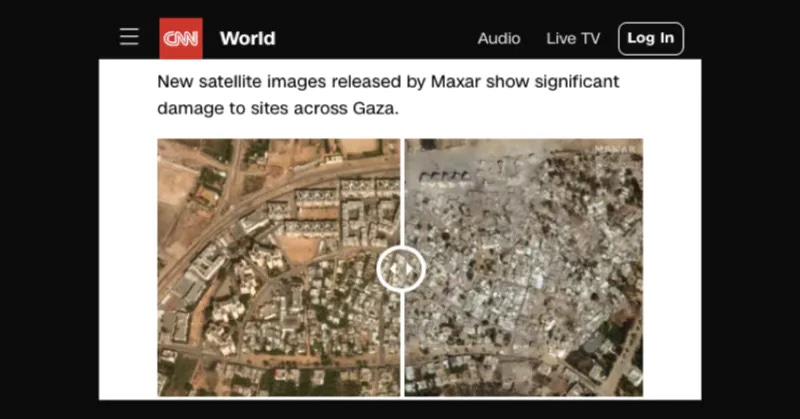W.J. Astore
Tom Engelhardt Is the Post-9/11 Generation’s I.F. Stone
Today’s post has a simple goal: to praise TomDispatch, a regular, reliable, and highly effective “antidote to the mainstream media.”
Its creator, editor, and chief author, Tom Engelhardt, founded the site soon after the 9/11 attacks in 2001. Its remarkable longevity and brilliant perspicacity testifies to his integrity, his character, indeed his patriotism and his humanity.
What I.F. Stone was to the Vietnam generation, Tom Engelhardt has been to the post-9/11 one. If more Americans had read his articles and truly listened to his words of wisdom, disastrous wars like the ones in Iraq and Afghanistan would never have happened, and America itself would be a far better place.
Tom began his site as a simple Listserv. Soon after 9/11, he started by putting together lists of articles he’d read, together with some commentary of his own, sharing those links and thoughts via email with friends and other interested parties. An early article that stuck in his mind (that he mentioned to me) concerned America’s bombing raids against Afghanistan in 2001, attacks that would serve mainly “to bounce the rubble” there. (Afghanistan had already been the site of a devastating war in the 1980s conducted by the Soviet Union.)
Quickly, Tom’s Listserv messages proved popular, focusing as they so often did on the folly and fallacies of American empire. A colleague suggested that he should create a website featuring his “tomgrams.” Though not a tech or computer wiz, Tom embraced the challenge, overseeing the founding of a dedicated site for original articles that would serve as “a regular antidote to the mainstream media.”
Tom has now been posting his tomgrams for 22 years, usually three original pieces each week, on Sunday, Tuesday, and Thursday. It’s the side job that took over his life, he ruefully admits. (Tom has been a longtime editor for several publishing houses, as well as writing several of his own books, notably “The End of Victory Culture,” which I highly recommend.)
I first started writing for TomDispatch in 2007. I recently posted my 106th article at the site. Tom has made me work! He features articles that are typically 2000 words or longer, articles that often include a dozen or more links that readers can follow to confirm facts and deepen their knowledge. Each article Tom posts goes through a rigorous process of editing, far more so, it seems, than many print magazines use nowadays. Typically, when I write for Tom, he edits my pieces, after which three proofreaders offer their own suggestions and corrections, all of which I review along with Tom. It’s a laborious process that produces consistently high-quality pieces at the site.
If you’re a regular reader of his site, you’ll have noticed that Tom writes introductions to nearly every piece he posts at TomDispatch. Some of his intros end up being essays in their own right. He is seemingly inexhaustible.

Articles initially posted at TomDispatch usually go to many other sites. My most recent piece for Tom went to Common Dreams, Counterpunch, Information Clearing House, The Nation, ZNet, and LA Progressive, among other sites. Most of these are broadly liberal or progressive, but Lew Rockwell, a libertarian site, picked up my last piece as well. In the past, mainstream sites like CBS News have picked up and posted TomDispatch pieces, and three of my “tomgrams” earned a mention in the New York Times (here and here and here). Another one was posted (in shorter form) by the LA Times. All this is to say that TomDispatch’s reach far exceeds that of the site itself.
It’s amazing the network of readers and publishers Tom has built over the last 20+ years. I’m amazed as well at how some of my articles have been translated into foreign languages, including German, French, Italian, Spanish, Portuguese (in Brazil), Danish, Czech, and Arabic. Honestly, I never thought I’d be so widely read, and I owe that to Tom, who saw in 2001 the need for an alternative to the mainstream media soon after the events of 9/11 and all the mindless patriotic hoopla that followed.
What makes TomDispatch unique? Certainly, the length and rigor of its pieces. Most sites nowadays post shorter works of 600 words or fewer. I’m also struck by the diversity of authors at the site. And, if I may, I wish to applaud Tom for seeking out military and government dissenters, military officers like Andrew Bacevich and Danny Sjursen and State Department dissenters like Peter Van Buren. And Tom has enlisted people like Noam Chomsky, Chalmers Johnson, Barbara Ehrenreich, Adam Hochschild, and so many other authors for whom he’s served as an editor.
(Check out Tom’s incredible list of authors since 2002 here.)
Later this year, Tom will celebrate his 80th birthday. He tells me TomDispatch is nearing its end, that soon, perhaps in the next year or two, it’ll post its last article. When it does, a bright light of stimulating discourse and informed dissent will be extinguished. America will be worse for it.
I urge you to dip into the TomDispatch archive. It begins in 2002 and comes forward to the present day. Read a few articles, especially on war, militarism, and empire. And tell me: Isn’t it amazing how much Tom saw that those in officialdom either didn’t see or refused to see?









